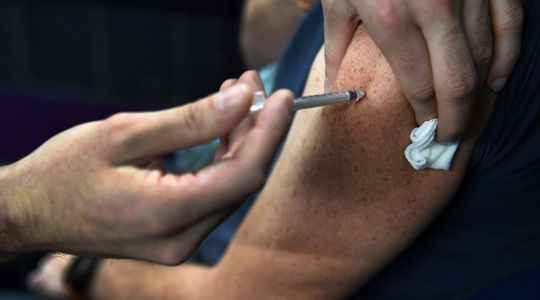Like an air of freedom surfs over France. After more than two years of pandemic, punctuated by confinements, curfews, exit certificates, bans on going to certain places, and the health pass… The French are breathing. Since Monday May 16, the mask has been lifted in one of the last places where its wearing was still compulsory: transport.
However, all these signs of improvement do not reflect the end of the epidemic. The country went through the Omicron wave but the virus continues to circulate in France. According to the latest available data published by Public health France Thursday, May 19, the incidence rate has dropped by 18% in one week, but the reproduction rate, the R, has been increasing since last week.
If the good weather seems to protect us from a new surprise wave, the drop in the effectiveness of the last doses of anti-Covid vaccines six months after the last dose could also weigh in the balance. Especially since even more than 40% of the population has not received their first booster dose (or third dose).
To view the infographic, Click here
The government is also showing the same line. The Minister of Health said in mid-May that “the pandemic is not over”, and some restrictions will also be maintained. A “health” pass – distinct from the vaccination pass because it also works in the event of a recent negative test – is still required to access health establishments in the broad sense. The measure will last at least until the summer, according to Olivier Véran.
Above all, the Minister raised the possibility of a new vaccination booster campaign in the fall, but refrained from giving any details, stressing that everything would depend on the appearance of new variants and their profile more or less dangerous or resistant to existing vaccines.
Disparities between ages
Moreover, vaccination is slowing down. Injections of the second dose (or first for someone already infected with the virus) increased by only 0.03% this week, and those for the booster dose by 0.02%. People aged between 70 and 80 are the best vaccinated, with rates approaching 90% of people who have received a first booster dose. On the other hand, if nearly 80% of the French received a complete vaccination, not even 60% of the population received this first booster dose.
To view the infographic, Click here
Few customers for the fourth dose
Regarding the fourth dose, or second booster dose, “only 34.8% of eligible 60-79 year olds and 25.5% of eligible 80 and over” received it, also underline the health authorities, concerning people most at risk of developing serious forms. However, it was opened to people over 80 in mid-March and to people over 60 in April.
In its opinion of January 19 on the advisability of setting up a second booster dose of vaccination, the Council for the Orientation of the Vaccine Strategy noted that with regard to hospitalizations, the protection conferred by the booster in people over the age of 65 years remains at 94% from two to nine weeks later and 89% more than ten weeks later. A small drop, certainly, but which could be increased quickly with a reminder.
To view the infographic, Click here
This measure is however not compulsory but “in a period of circulation of the virus, it is as much a reduction in a hospital impact”, had justified the Minister of Health, Olivier Véran.
Fewer and fewer vaccination centers
Two years ago, it was sometimes impossible to book a date to be vaccinated as the French rushed to appointments. Many vaccination centers were then opened in order to be able to receive as many people as possible and reduce the waiting time. But for several months, they have been steadily decreasing on the territory.
To view the map, Click here
The absence of these centers was however compensated by the authorization given to pharmacists to be able to vaccinate against Covid-19. Many pharmacies in France therefore practice vaccination. Nurses have also been authorized to vaccinate against the virus since the end of 2021.
